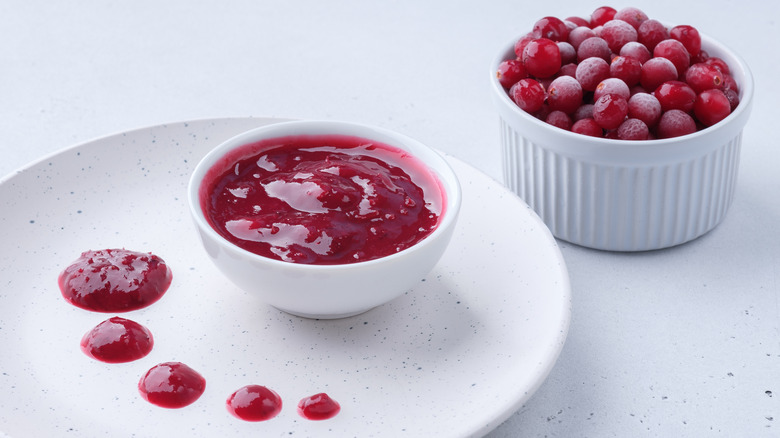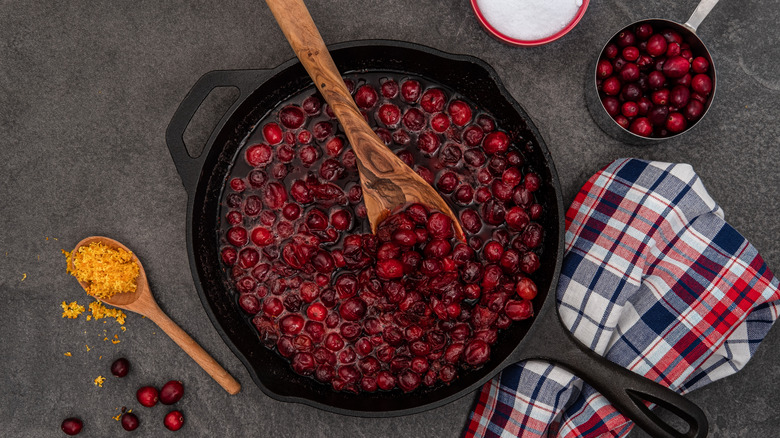Why Your Cranberry Sauce Ended Up Too Runny
There are a few items that are necessary for a traditional Thanksgiving. Whipped, creamy mashed potatoes are certainly a requirement to ensure you're maximizing your starch. However, tubers alone aren't enough carbohydrates to keep you energized for either your family football game or your Thanksgiving nap. To really get stimulated, or conversely, sedated, you're also going to need some stuffing. But that means it's time for another starch — enter the yams. However, those marshmallows on top weren't quite enough sugar, which is why nothing completes a Thanksgiving plate quite like cranberry sauce.
The history of cranberry sauce is actually one of the most fascinating parts of the Thanksgiving meal. Insider says that cranberries are one of the few fruits native to the United States, and were therefore harvested by Native Americans, along with blueberries and concord grapes.
However, none of that explains why your cranberry sauce is too runny. For those brave souls who know that cooking cranberry sauce from scratch is the only way to really enjoy it, sauce that is less like jelly and more like a sugary cranberry soup is common. If you're one of those who find their sauce is too thin, or who merely wants to get it so thick a knife stands up in it, then here's how to give it some bulk.
Three easy ways to thicken your runny cranberry sauce
The basic recipe for cranberry sauce is simple. You put water, sugar, and cranberries into a pot and heat them. That's it. If you feel like living on the edge, zest with lemon. Now you know how to free yourself from the canned stuff and get sauce your ancestors would be proud to serve along with freshly churned butter. Though they won't tolerate runny sauce, so it's time to fix that.
The simplest reason that your cranberry sauce is too runny is that it has too much liquid in it. Usually, this is just water, but some people use orange juice or other flavored fluids. No matter what you're using, the answer is to cook it longer. The longer you heat the sauce, the more water is going to evaporate out of it, and the thicker it's going to be, according to Eating Well. Cooking it also releases pectin, which NPR explains is used for gelling.
There's another ingredient that can help thicken up your sauce, and that's to add sugar. It might be a horrible hardship to make the sauce even sweeter, but you'll need to soldier on. McCormick notes that sugar can help thicken the sauce. If miraculously, cooking it longer, cutting down on liquids, and adding sugar still doesn't work, or you don't want to do any of those things, then you can try cornstarch, gelatin, or tapioca.

